News
-
 Climate
ClimateHere’s how much climate change increases the odds of brutally hot summers
Climate change made 2023’s record-breaking heat waves in the United States, Mexico, China and southern Europe much more likely, new simulations show.
By Nikk Ogasa -
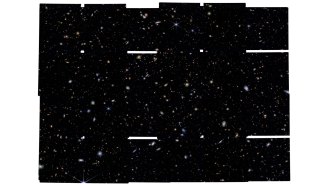 Space
SpaceThe James Webb telescope may have spotted stars powered by dark matter
Three objects in the distant universe bear signs of hypothesized “dark stars,” researchers claim, though others say more definitive data are needed.
By Skyler Ware -
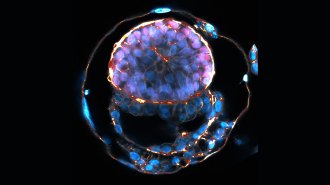 Humans
HumansHuman embryo replicas have gotten more complex. Here’s what you need to know
Lab-engineered human embryo models created from stem cells provide a look at development beyond the first week. But they raise ethical questions.
-
 Planetary Science
Planetary ScienceNASA’s DART mission lofted a swarm of boulders into space
Hubble telescope images of the asteroid Dimorphos reveal a halo of 37 dim, newfound objects — most likely boulders shaken loose from the surface.
By Sid Perkins -
 Psychology
PsychologyTime in nature or exercise is touted for happiness. But evidence is lacking
A review of hundreds of studies finds limited strong scientific evidence to support many common recommendations for leading a happier life.
-
 Climate
ClimateWhat’s causing this summer’s extreme heat waves?
Climate change and meandering jet streams are fomenting this summer’s extreme waves of heat.
By Nikk Ogasa -
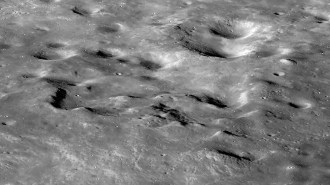 Planetary Science
Planetary ScienceGranite likely lurks beneath the moon’s surface
Without plate tectonics or water, granite is hard to make. But a 50-kilometer-wide hunk sits beneath the moon’s surface, lunar orbiter data suggest.
-
 Health & Medicine
Health & Medicine‘Milking’ umbilical cords may help some sickly newborns
Taking a few seconds to push umbilical cord blood into a baby’s belly could provide extra essential nutrients. But questions about the practice remain.
-
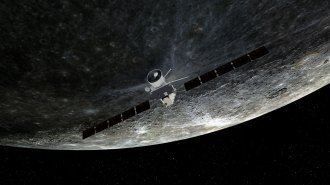 Planetary Science
Planetary ScienceA rain of electrons causes Mercury’s X-ray auroras
The first direct measurement of electrons raining down on Mercury suggests this particle precipitation causes most auroras in the solar system.
By Elise Cutts -
 Chemistry
ChemistryHow Benjamin Franklin fought money counterfeiters
Researchers are confirming some of the techniques that Benjamin Franklin and his associates used to help early American paper currency succeed.
-
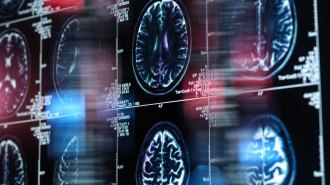 Health & Medicine
Health & MedicineNew Alzheimer’s drugs are coming. Here’s what you need to know
Several new drugs that target brain plaques slow mental decline in people with Alzheimer’s disease. But they are not for everyone, researchers caution.
-
 Health & Medicine
Health & MedicineA new device can detect the coronavirus in the air in minutes
The detector can sense as a few as seven to 35 coronavirus particles per liter of air — about as sensitive as a PCR test but much quicker.